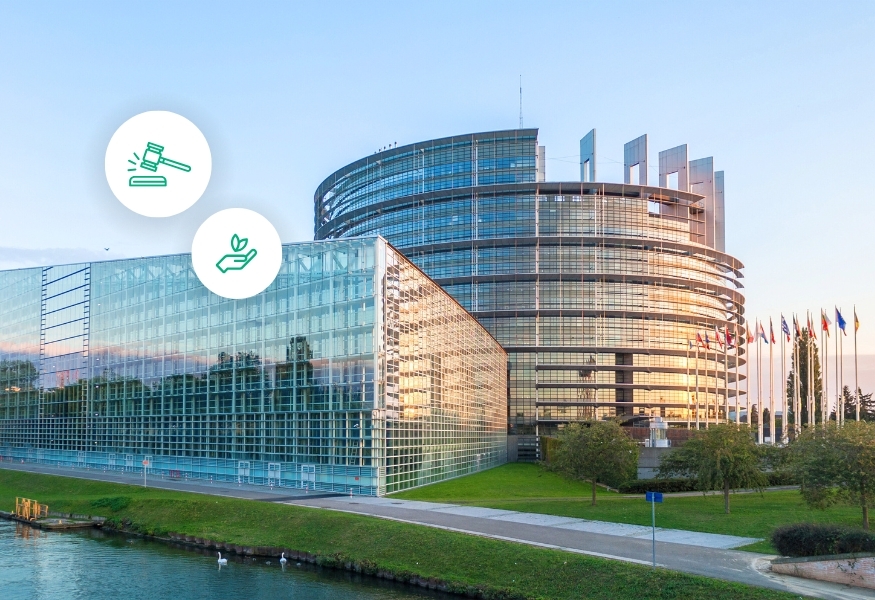Diversity, equity and inclusion: What do you need to know?

Contemplate the world we live in today. Over 8 billion people spread over 7 continents. Diversity is everywhere, but inclusion is a choice to make. We're all unique, and these differences can sometimes lead to discrimination and rejection whether through direct or indirect mistreatment of employees, or by treating some employees less favorably than others. The United Nations reports that one in six people globally experiences some level of discrimination, with women and individuals with disabilities being especially impacted. By promoting diversity, equity, and inclusion (DEI) in the workplace, it is one step forward to minimize inequalities.
In this series of blog posts, we’ll explore what it means to create a diverse and inclusive workplace and how your company can step up to the plate.
But What is DEI?
DEI stands for Diversity, Equity, and Inclusion. These are the actions we take to build awareness and change mindsets, behaviors, and practices to foster a welcoming and varied work environment. Although these concepts are interrelated, each one has its own distinct meaning:
1. Diversity: This means having a mix of people from different backgrounds and identities. No one person is diverse, but a group of people with distinct experiences and perspectives creates diversity. It includes:
- Gender diversity: Balancing men, women, and nonbinary people in the team.
- Age diversity: Bringing together different generations.
- Ethnic diversity: Representing various nationalities and cultures.
- Physical ability and neurodiversity: Including people with visible and invisible disabilities.
- Sexual-Orientation Diversity: Fair and equal representation of individuals across a range of sexual orientations, including but not limited to heterosexuality, homosexuality, bisexuality, asexuality, and other members of the LGBTQIAP+ community.
2. Equity: Ensuring everyone has fair access to opportunities and is treated justly. Equity recognizes that treating everyone the same sometimes isn’t always fair; instead, it considers individual circumstances to achieve equal outcomes.
3. Inclusion: Creating a sense of belonging where everyone feels welcomed, respected, and heard. It is the result of deliberate actions to promote a safe work environment where employees can express themselves without fear of retribution. An inclusive workplace should consider:
- Training everyone in the company about diversity and inclusion.
- Using inclusive language(s) and offering language training.
- Hiring practices that actively seek underrepresented groups.
- Organizing office celebrations that respect different diets, languages, and accessibility needs to better interaction and collaboration among employees.
- Implementing flexible work models that accommodate diverse schedules and responsibilities.
And Why DEI Matters?
There’s a strong moral and business case for DEI. An inclusive workplace allows everyone to work together without fear or discomfort, helping all employees to succeed. Discrimination-free environments let workers reach their full potential and earn based on merit.
The Diversity Wins report by McKinsey emphasizes the importance of creating a welcoming culture to attract and retain diverse talent, making Diversity, Equity, and Inclusion (DEI) initiatives essential for employee retention. The report reveals several important insights:
- Diversity Boosts Performance: Companies with more women in leadership are 25% more likely to be profitable. Those with over 30% women executives outperform others by 48%.
- Ethnic Diversity Pays Off: Companies with high ethnic diversity outperform others by 36% in profitability.
- Slow Progress: Building diverse teams is a slow process, partly due to negative feelings towards the inclusion process, particularly from the members who feel excluded and perceive unfairness in terms of opportunities.
- Better Decisions: Different perspectives enhance problem-solving and vision.
- Attract and Keep Top Talent: Tracking workforce diversity helps retain diverse employees.
- Innovation and Insight: Diverse teams are more innovative and better at predicting market changes.
- Happy Employees: Companies committed to diversity report a 75% higher chance of having a teamwork-focused culture.
Tackling Diversity, Equity, and Inclusion (DEI) matters within the company is not only a matter of social responsibility. By cultivating a diverse and inclusive environment, companies can foster creativity, improve employee engagement, and financial performance. Embracing DEI is a key factor in succeeding in today’s dynamic and globalized business landscape.
On the next post of this series, we are going to have a closer look at why exclusion occurs and understand more about unconscious bias. Read the article: Why does exclusion occur?



